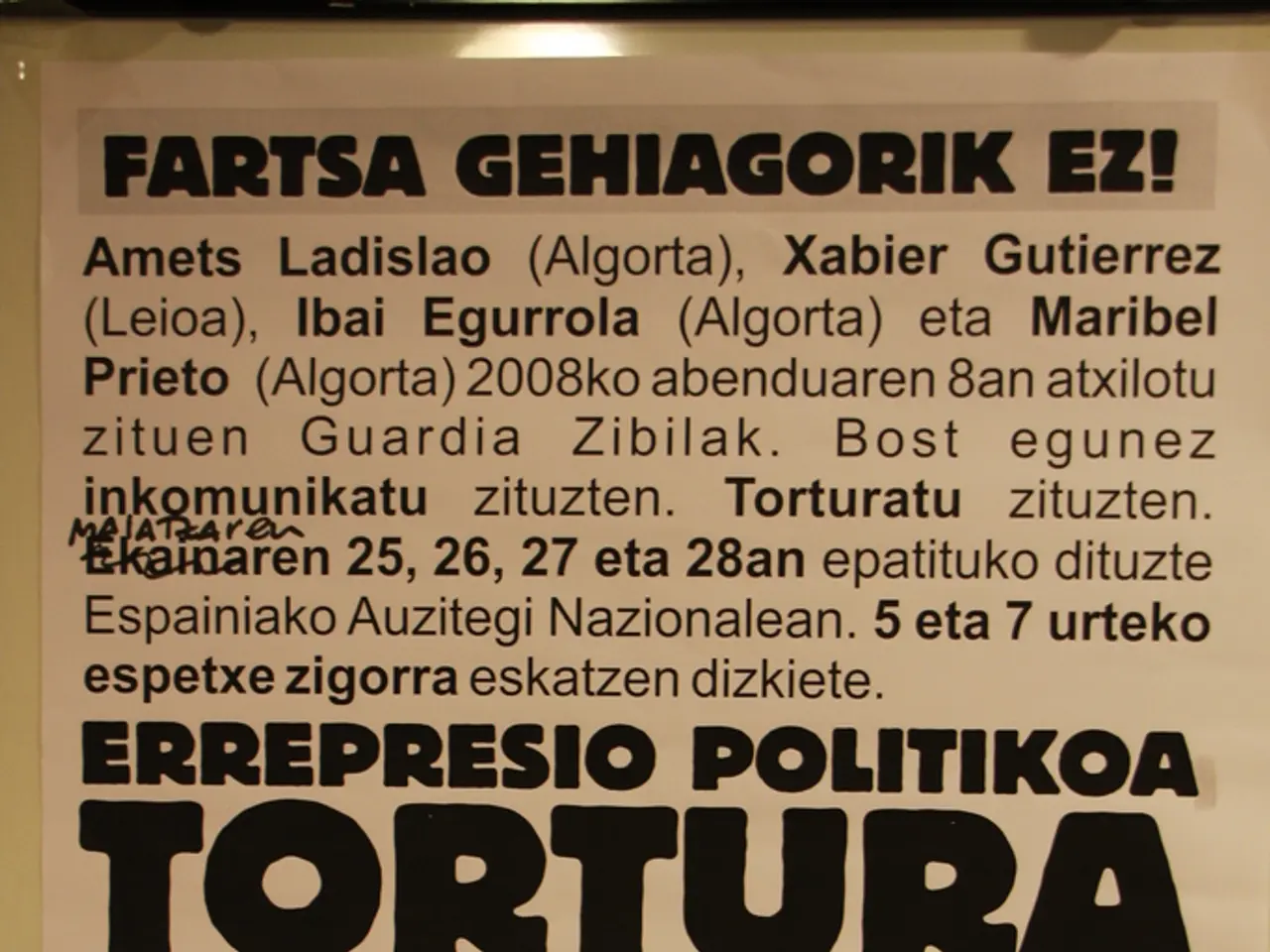Israel Sanctions Decision Pauses Mrez, Sánchez Advocates Approval
The question of sanctions against Israel has become a contentious issue within the German government, with the SPD advocating for more pressure, the CSU firmly against further sanctions, and the CDU showing some openness towards personal sanctions but expressing disapproval of trade sanctions.
Meanwhile, Spain has taken concrete steps to put pressure on Israel, joining South Africa's genocide lawsuit against Israel at the International Criminal Court (ICC) in 2024. Spain has also been vocal in its criticism of Israel's military actions in the Gaza Strip and has already demanded Israel's exclusion from the Eurovision Song Contest (ESC) 2026.
The Spanish broadcaster RTVE, one of the five major financial backers of the Eurovision Song Contest, has threatened to withdraw if Israel participates. This threat comes after Sánchez compared Israel's potential participation in ESC 2026 to Russia's exclusion following its comprehensive attack on Ukraine in 2022.
During his meeting with Spanish Prime Minister Pedro Sánchez, German Chancellor Friedrich Merz reiterated Germany's support for Israel but did not comment on the EU Commission's proposed sanctions. However, Merz defended his decision to restrict arms exports to Israel in August.
The meeting between Merz and Sánchez focused on bilateral relations, European policy, and security policy, with Israel policy being a dominant topic at the joint press conference. Sánchez emphasized that the Spanish people are friends of the Israeli people despite the growing outrage in Spain over the daily horrors from the Gaza Strip.
In September 2022, Spain announced a complete arms embargo and a ban on entry for individuals involved in genocide, human rights violations, and war crimes in Gaza. The EU Commission President, Ursula von der Leyen, proposed several punitive measures on Wednesday to pressure the Israeli government, including withdrawing trade preferences for 37% of Israeli goods exports to the EU and imposing sanctions on politicians accused of human rights violations and incitement to hatred.
The German government will decide on the EU Commission's proposals by early October, revealing differing opinions among the coalition parties regarding EU sanctions proposals against Israel. The SPD supports putting stronger pressure on Israel with EU sanctions, the CSU is strictly against further punitive measures, and within the CDU, there is rejection of trade sanctions while some openness exists towards sanctions against individuals.
As the debate over Israel sanctions continues within the EU, it remains to be seen how Germany and other member states will respond to the EU Commission's proposals and the actions of countries like Spain.
Read also:
- United States tariffs pose a threat to India, necessitating the recruitment of adept negotiators or strategists, similar to those who had influenced Trump's decisions.
- Weekly happenings in the German Federal Parliament (Bundestag)
- Southwest region's most popular posts, accompanied by an inquiry:
- Discussion between Putin and Trump in Alaska could potentially overshadow Ukraine's concerns








